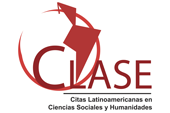Teleological expansion of the procedural mechanism of group action from a configuration of Colombian legal realism
DOI:
https://doi.org/10.15332/iust.v0i21.2910Keywords:
Legal realism, Political constitution, Legislator, Group action, Legal theoryAbstract
The group action is a procedural mechanism of procedural roots established by the National Constituent Assembly in article 88 of the Constitution, as an action that originates from the damages caused to a plural number of people, without prejudice to the corresponding individual actions. However, the foregoing, the constituent himself states in the first paragraph of the aforementioned article 88 that he will be the legislator in charge of regulating the procedural aspects of the constitutional device in question. The legislature complied with the order imposed by the constitutional text and, through Law 472 of August 5, 1988, development in article 88 of the Constitution in relation to the exercise of group actions. With regard to the origin and the purpose pursued by enervating this procedural action, the legislator provided in articles 3 and 46 that the purpose pursued by the persons requesting the action is for the recognition and payment of the compensation for damages caused. The foregoing denotes that for the legislator the group action was provided for exclusively to obtain an exclusively economic reparation for people who have suffered common harm. However, within the Colombian legal system immersed under a theory of legal realism canon law, a new finalistic conception is exported with a broader radius of action, since it is observed in the judicial praxis of the administrative judges of the republic, the possibility of requesting, apart from pecuniary appraisals, reparations of a moral and psychological nature that help to further dignify the situation of the plaintiffs.
Downloads
References
Camargo, P. P. (2009). Derecho constitucional. Bogotá D.C: Editorial Leyer.
Consejo de Estado (2021) Sala de lo Contencioso Administrativo Sección Tercera, 08001-23-33-000-2015-00853-01. 7 de diciembre de 2021.
Consejo de Estado (2016) Sala de lo Contencioso Administrativo. Sección Tercera, 5001-23-31-000-2000-03491-01(AG). 29 de febrero de 2016.
Congreso de la República de Colombia (1998) Ley 472 Por medio de la cual se desarrolla el artículo 88 de la Constitución Política de Colombia en relación con el ejercicio de las acciones populares y de grupo y se dictan otras disposiciones. DO. 43357 del 6 de agosto de 1998
Corte Constitucional Colombiana (2001) Sentencia C-836. D-3374. 9 de agosto de 2001.
Gansler, L. L. (2003). Class Action: The Landmark Case that Changed Sexual Harassment Law. Pensilvania: Anchor; Reprint edition.
Garner, B. A. (1999). Black's Law Dictionary. Oxford: Editorial West Group.
Icardi, A. (1954). Las Cortes de equidad en el Sistema de la "Common Law". Florida: University of Florida.
Jamaica, G. (2020) Criterios de reparación integral utilizados por el Tribunal Administrativo de Santander en los asuntos de reparación a daños causados a un grupo durante el período 2006-2018. Universidad Santo Tomás Disponible en https://repository.usta.edu.co/bitstream/handle/11634/27389/2020JamaicaGonzalo.pdf?isAllowed=y&sequence=6
Kaufmann, A. (1999). Filosofía del derecho. Bogotá D.C: Editorial Universidad Externado de Colombia.
López Medina, D. E. (2000). El Derecho de los jueces. Bogotá D.C: Editorial Legis.
Oriz, G. J. (2013). Las acciones populares y de grupo frente a las acciones colectivas. Bogotá D.C: Editorial Universidad Externado de Colombia.
Patiño, C. A. (2012). Acciones de tutela cumplimiento populares y de grupo. Bogotá D.C: Editorial Leyer.
Suárez, F. (1967). Tratado de las leyes. Madrid: Instituto de Estudios Políticos.
Tribunal Administrativo de Santander - Colombia (2012) Sentencia número 2012-00281-00.
Tribunal Administrativo de Chocó – Colombia (2019) Sentencia No.45 del 2 de mayo. (2019). Radicación Número. 27001 33 31 001 2009 00245 00 (Acumulada 2002-1001, 2003-00179, 2004- 00401 y 2003-0148). M.P. Norma Moreno Mosquera. Bogotá, Colombia.
Uribe Vargas, D. (1996). Evolución política y constitucional de Colombia. Madrid: Editorial Universidad Complutense.
Vallejo Mejía, J. (2000). Lecciones de Teoría Constitucional. Bogotá D.C: Editorial Pontificia Universidad Javeriana.
Vidal Perdomo, J. (1996). Derecho constitucional general e instituciones políticas Colombianas. Bogotá D.C: Editorial Universidad Externado de Colombia.
Zea, L. (1980). Pensamiento Positivista Latinoamericano. Ayacucho: Editorial Ariel.











